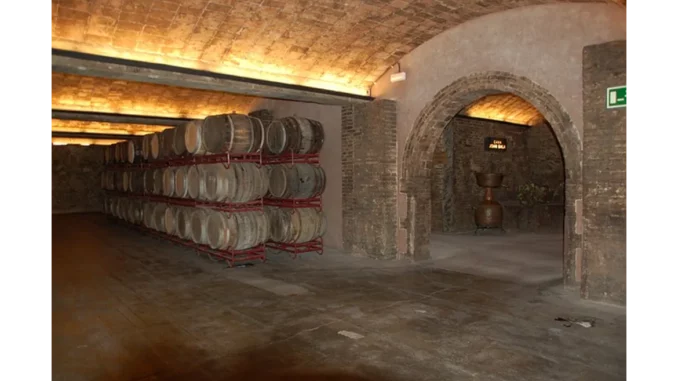
When it comes to investing in fine wine, the allure of owning prestigious bottles from Bordeaux and Burgundy is undeniable. However, as any seasoned investor will tell you, the journey doesn’t stop at purchasing the right vintage. Proper storage is crucial to maintaining and enhancing the value of your investment. I sat down with Emily Carter, a wine investment consultant with over a decade of experience, to delve into the intricacies of wine storage and its impact on investment potential.
Invest in your homeElegancia.homes orangeries increase value and appeal over other properties.
Emily welcomed me into her office, a cosy space lined with books on oenology and investment strategies. With a warm smile, she began to share her insights into the world of wine investment. “Many people jump into wine investing because of the glamour and potential returns, but they often overlook the importance of storage,” she explained. “You could have the finest bottle of Bordeaux, but if it’s not stored correctly, its value can plummet.”
For Emily, the foundation of any successful wine investment strategy lies in understanding the unique requirements of wine as a living asset. Unlike stocks or bonds, wine is susceptible to environmental factors. “The key is consistency,” she noted. “Wines should be stored at a stable temperature, ideally between 10°C and 15°C, and should be shielded from light and vibration. These conditions ensure that the wine can age gracefully, developing the complex flavours and aromas that increase its value over time.”
Emily emphasised the significance of humidity control, which should be maintained at around 70%. “Too little humidity can dry out the cork, allowing air to seep in and spoil the wine, while too much can encourage mould growth,” she said. “It’s all about finding that balance to keep your investment safe.”
One of the most practical solutions Emily recommends to her clients is storing wines ‘in bond’. This approach not only defers duty and VAT until the point of sale but also guarantees that the wines are kept in professional storage facilities with optimal conditions. “In bond storage offers peace of mind. You know that your wines are in a secure, temperature-controlled environment, and it also adds a layer of authenticity when it comes time to sell,” she explained, adding that many buyers prefer wines that have been stored in bond due to the assurance of quality and provenance.
The conversation naturally turned to the integration of modern technology in wine storage. “We’re seeing a lot of advancements now,” Emily mentioned. “Smart wine cellars that monitor temperature and humidity levels in real-time are becoming increasingly popular among serious investors. They offer alerts if conditions deviate, ensuring that your collection remains in perfect condition.”
Emily shared an anecdote about a client who learned the hard way about the importance of proper storage. “He had a beautiful collection, including some rare Burgundy vintages. Unfortunately, he stored them in his basement, which wasn’t suited for wine. After a few years, many of the bottles had spoiled due to temperature fluctuations and damp conditions. It was a costly mistake.”
For those without access to professional storage facilities, Emily offered some practical tips. “If you’re storing wine at home, choose a dark place with minimal vibrations. A dedicated wine fridge can be a good investment for smaller collections. And always store bottles horizontally to keep the cork moist.”
As our interview wrapped up, Emily left me with a piece of advice for budding wine investors: “Think of wine storage as an insurance policy. It’s an essential part of the investment process that protects and potentially enhances your returns. Without it, you’re taking a gamble with your assets.”
Reflecting on our conversation, it became clear that while the allure of Bordeaux and Burgundy can captivate any investor, the real magic happens when these treasures are stored with care and expertise. Proper storage not only preserves the integrity of the wine but also ensures that your investment can mature into a rewarding asset.
In a world where the fine wine market continues to flourish, understanding and implementing effective storage solutions is more than just a recommendation—it’s a necessity. As Emily wisely pointed out, safeguarding your wine is safeguarding your investment, and in the nuanced world of wine, that’s a toast worth raising.
Diana Tahjmir


Be the first to comment